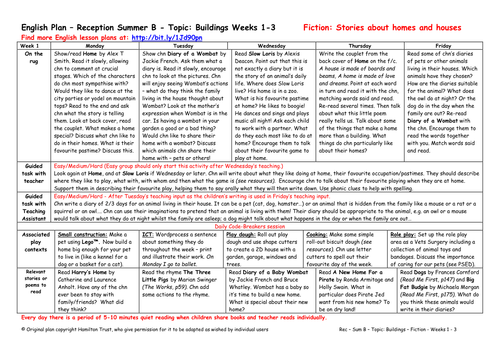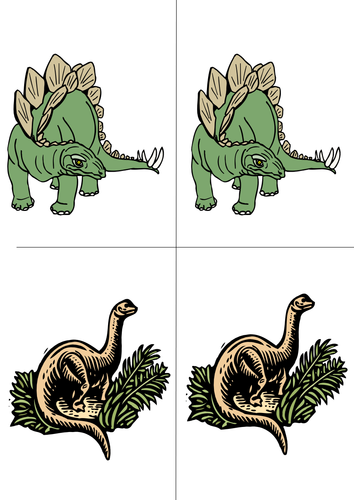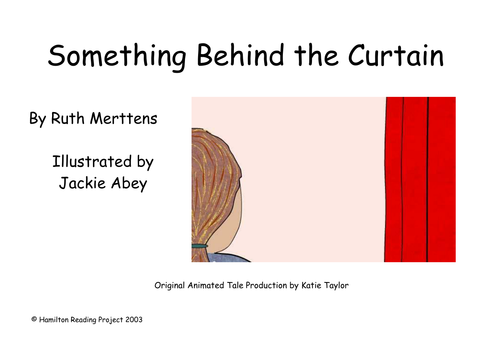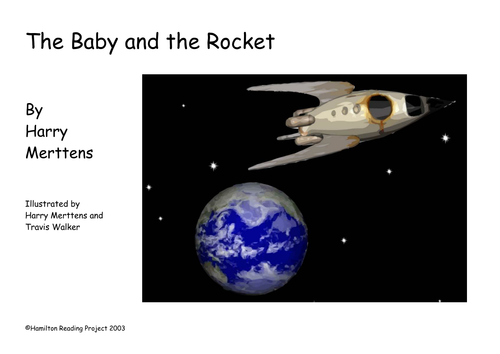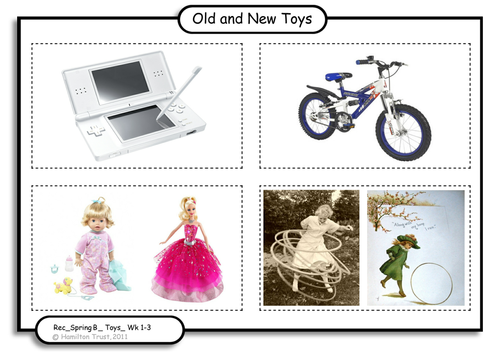
397Uploads
10045k+Views
11647k+Downloads
Understanding the world

Reception Fiction (Buildings): Stories about homes and houses (weeks 1-3)
Listen to stories about different homes for people and creatures and decide where they would like to live, Home by Alex T Smith, The Town Mouse and the Country Mouse by Helen Ward, and Diary of a Wombat by Jackie French and Bruce Whatley. Children write their own version of The Town and Country Mouse and use The Lighthouse Keeper’s Lunch by Ronda and David Armitage to plan best lunches. Keep diaries, make lighthouses and stormy music.

Reception Non-fiction (Dinosaurs): Information texts (weeks 1-2)
Use a 'dinosaur egg' to stimulate discussion about eggs and dinosaurs. Have fun with a range of activities, count and sound out words (Harry and the Bucketful of Dinosaurs by Ian Whybrow and Adrian Reynolds, How do Dinosaurs Get Well Soon by Jane Yolen and Mark Teague), pelmanism, Top Trumps and Dinosaur Dash. Make various dinosaur-related objects, 'steal' dino eggs and draw and label dinosaurs.

Reception Non-fiction (Families): Names, captions and notices (weeks 1-2)
Discuss families and the various roles within them, read the following stories My Mum, My Dad, Me and You, all of which are by Anthony Browne and Don’t Let the Pigeon Drive the Bus and Don’t Let the Pigeon Stay Up Late by Mo Willems. Children write a book about someone who cares for them using similes and also notices for family members. They learn their address too. Activities include paper people, house plans, family portraits and names.

Reception Non-fiction (Space): Information and instructions (weeks 1-2)
Use the Animated Tale The Baby and the Rocket to introduce children to information texts. Compare facts and fiction. Make a large rocket and use photos of the construction to write instructions. Lots of activities for children to investigate both planets and rockets.

Reception Non-fiction (Toys): Labels, captions, list, descriptions (weeks 1-3)
Taking inspiration from I Love You Blue Kangaroo by Emma Chichester-Clark, children share favourite toys and write descriptions. They talk about toys from long ago with a visitor, learn about old bears and make a class toy museum of old and new toys writing factual statements for displays.

